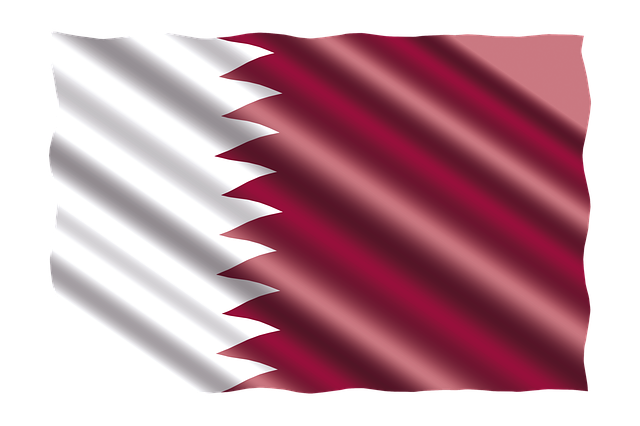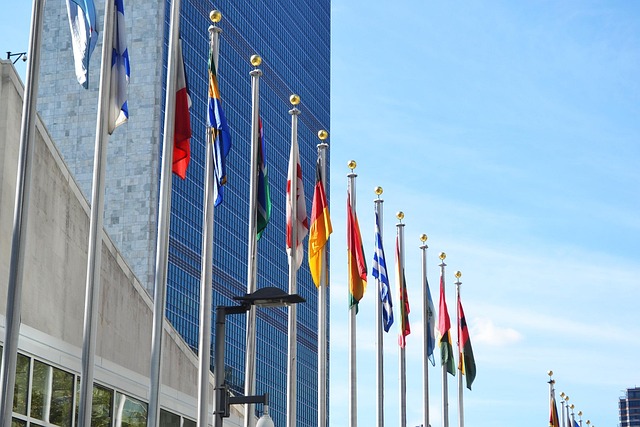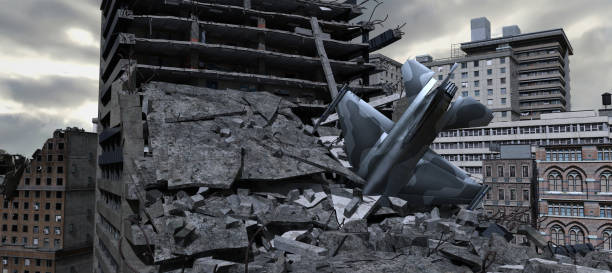1. The Qatar Response That’s Redefining Middle East Politics and Regional Alliances
The Qatar response to regional pressures and diplomatic isolation has significantly altered the traditional balance of power in Middle East politics. In 2017, when Qatar was blockaded by Saudi Arabia, the UAE, Bahrain, and Egypt, many expected the small Gulf state to yield quickly. Instead, Doha launched a calculated and assertive foreign policy campaign that not only ensured its survival but also elevated its status in the region. By strengthening ties with Turkey and Iran, increasing its investment in soft power tools like Al Jazeera and international education initiatives, and showcasing resilience in the face of economic and political pressure, Qatar turned a crisis into an opportunity to lead a shift in regional alliances.
This Qatar response has forced traditional powerhouses like Saudi Arabia and the UAE to recalibrate their approach. With shifting allegiances and growing regional autonomy, Doha is no longer just a participant in the Gulf Cooperation Council (GCC) it’s a driver of change. The reshaping of Middle East alliances in recent years owes much to Qatar’s ability to combine energy diplomacy, strategic partnerships, and independent foreign policy moves. As the region continues to evolve, Qatar’s calculated response to crisis is now a case study in modern Gulf diplomacy and geopolitical resilience.
2. Qatar Response to Gulf Tensions: A Strategic Shift in Middle East Diplomacy
The Qatar response to Gulf tensions represents a critical inflection point in the broader landscape of Middle East diplomacy. Rather than engaging in confrontation, Qatar opted for a strategic and nuanced approach that emphasized diplomacy, media influence, and international law. As regional tensions spiked following the blockade, Doha used its vast LNG revenues to reinforce economic stability and foster alliances with global powers like the U.S., the UK, and China. This approach sent a clear message to adversaries and allies alike Qatar was not going to be a passive actor in the Gulf crisis but an active shaper of its outcome.
In shifting the narrative from one of victimhood to strength, the Qatar response effectively reframed the conversation around sovereignty, independence, and diplomatic innovation. Qatar amplified its role in global conflict mediation, hosting talks with groups like the Taliban and playing a central role in Afghanistan’s political transition. These efforts helped position Qatar not just as a Gulf state reacting to tension, but as a proactive player in regional conflict resolution and global diplomacy. The country’s emphasis on strategic resilience has since become a blueprint for smaller nations navigating the complexities of modern Middle Eastern geopolitics.
3. How the Qatar Response Is Reshaping GCC Dynamics and Geopolitical Alliances
The Qatar response to the diplomatic blockade didn’t just strengthen Doha’s independence it fundamentally transformed the internal dynamics of the Gulf Cooperation Council (GCC). Prior to the crisis, the GCC was largely dominated by Saudi and Emirati interests, with Qatar often viewed as a junior partner. However, the post-blockade era has seen Qatar rise as a more assertive and influential player, advocating for a more balanced and multipolar Gulf framework. By refusing to succumb to pressure and instead expanding bilateral ties with non-GCC members like Turkey and Iran, Qatar signaled a new approach that undermined the older, hierarchical order within the Gulf.
As a result, GCC unity was fractured, and even after the 2021 Al-Ula agreement restored diplomatic relations, the trust deficit remained. The Qatar response led to a broader regional reevaluation of alliances, pushing countries like Oman and Kuwait to adopt more neutral and independent policies, further weakening bloc conformity. Additionally, Qatar’s continued investment in global infrastructure, humanitarian aid, and energy markets allowed it to build soft power influence beyond the region. In this evolving landscape, the Qatar response has not only reshaped GCC dynamics but also redrawn the geopolitical map of the Middle East, where multipolar cooperation is beginning to replace traditional bloc politics.
4. From Blockade to Power Player: Qatar Response Sparks Major Foreign Policy Shift
The 2017 blockade could have been a crippling moment for Qatar economically, politically, and diplomatically. Instead, the Qatar response turned that potential defeat into a historic foreign policy pivot. Faced with isolation from its closest neighbors, Qatar doubled down on its global positioning by enhancing bilateral ties with NATO countries, mediating international conflicts, and expanding its diplomatic reach. Its foreign policy became increasingly centered on soft powe media, sports diplomacy, and global investment allowing Qatar to project influence far beyond its geographic size.
This strategic evolution in foreign policy is one of the most significant outcomes of the Qatar response. Today, Qatar serves as a key mediator in conflicts from Afghanistan to Sudan, while hosting major international events like the FIFA World Cup 2022 the first in the Arab world. These moves are not just symbolic; they represent a new model of foreign policy realignment based on independence, visibility, and global influence. In contrast to traditional Gulf states that rely heavily on military posturing or oil-based leverage, Qatar has crafted a modern diplomatic identity rooted in adaptability and engagement, proving the effectiveness of its bold response to regional adversity.
5. The Fierce Qatar Response That’s Challenging Saudi-UAE Hegemony in the Gulf
One of the most striking outcomes of the Qatar response is its direct challenge to the historical dominance of Saudi Arabia and the UAE in Gulf affairs. These two countries long viewed themselves as the key architects of the regional order, with Qatar expected to align with their leadership. However, Qatar’s refusal to bow to the demands of the 2017 blockade including shutting down Al Jazeera and curbing ties with Iran marked a turning point in the Gulf power structure. Instead of compliance, Qatar demonstrated fierce independence, signaling that its sovereignty and strategic autonomy were non-negotiable.
This defiance changed the game. The Qatar response successfully weakened the Saudi-UAE narrative of regional unity under their leadership and exposed internal rifts within the GCC. Qatar’s economic resilience, powered by its vast natural gas exports, allowed it to withstand the blockade while building stronger relationships with countries outside the traditional Gulf alignment. This approach has rebalanced power in the region, empowering smaller Gulf states to consider similar assertive strategies. Qatar’s bold resistance has not only challenged hegemony but has paved the way for a more decentralized, multi-vector diplomacy in the Gulf an outcome few could have predicted just a decade ago.
6. Qatar Response Explained: What It Means for Iran, Turkey, and the New Middle East Order
To fully understand the Qatar response, it’s essential to look at its impact on broader regional relationships particularly with Iran and Turkey, two countries that played pivotal roles during the blockade. Turkey quickly dispatched military support to Qatar and signed defense agreements that remain in force today, cementing a new level of military and strategic partnership. Iran, meanwhile, opened airspace and trade routes to ensure Qatar’s economic stability during the crisis. These developments led to an entirely new regional axis that bypassed traditional Gulf power centers and introduced new players into the equation of Middle East security.
The long-term effect of the Qatar response has been the formation of a more fluid and dynamic Middle East order, where bilateral relationships often trump bloc loyalty. Qatar now balances relations with the West, maintains open channels with Iran, and coordinates closely with Turkey making it one of the most diplomatically flexible countries in the region. This multilateral strategy contrasts with the rigid alliances that previously defined the Gulf, allowing Qatar to act as a mediator and convener in both Arab and broader Muslim world affairs. As a result, the Qatar response is not just a political maneuver it’s a fundamental shift in how regional alliances and influence are constructed in the modern Middle East.
7. Geopolitical Earthquake: How the Qatar Response Is Realigning Middle East Powers
The Qatar response to its isolation in 2017 triggered a geopolitical realignment that few foresaw. Instead of collapsing under pressure, Qatar chose to deepen its strategic partnerships with regional powers like Turkey and Iran, and also strengthened economic and diplomatic ties with Western nations. This bold move caused a domino effect throughout the Middle East, forcing other countries to reconsider their alliances and diplomatic strategies. Qatar’s ability to remain resilient during the Gulf crisis, while expanding its global influence, sent a message to both rivals and allies a small state with a clear vision and vast energy resources can play an outsized role in shaping regional dynamics.
As the balance of power continues to shift, the Qatar response has contributed to a new multipolar Middle East, where smaller states have greater leverage and room to maneuver. This realignment has disrupted the traditional dominance of Saudi Arabia and the UAE, enabling countries like Oman and Kuwait to adopt more neutral, independent foreign policies. Simultaneously, Qatar’s successful mediation in international conflicts from Afghanistan to Gaza has further bolstered its reputation as a diplomatic force. In effect, the Qatar response has helped usher in a new era of flexible diplomacy and shifting power centers in the region.
8. Energy, Alliances & Diplomacy: The Strategic Depth of the Qatar Response
At the heart of the Qatar response lies a calculated use of its most powerful tool: energy diplomacy. As the world’s largest exporter of liquefied natural gas (LNG), Qatar has leveraged its energy resources to forge strategic alliances across continents. During and after the Gulf crisis, Doha secured long-term LNG supply agreements with countries like China, South Korea, and the EU, turning its energy sector into a cornerstone of international diplomacy. This strategy not only guaranteed economic security but also elevated Qatar’s importance on the global stage, making it a critical player in the world’s energy transition.
But energy alone doesn’t explain the full depth of the Qatar response. Doha simultaneously invested in diplomatic infrastructure, building soft power through education, humanitarian aid, and media influence. Institutions like the Qatar Foundation and Al Jazeera continue to shape global discourse, while Qatar’s role in conflict mediation has positioned it as a neutral ground for negotiation. By intertwining energy, soft power, and strategic diplomacy, the Qatar response presents a multidimensional approach to modern statecraft. It reflects a long-term vision where influence is not just measured in military might or geography, but in connectivity, adaptability, and global interdependence.
9. Why the Qatar Response to Isolation Became a Turning Point in Arab Diplomacy
The Qatar response to diplomatic and economic isolation wasn’t just a regional event it marked a significant turning point in Arab diplomacy. When Saudi Arabia and its allies imposed a blockade, they anticipated compliance, not defiance. But Qatar’s choice to resist external pressures and uphold its sovereign foreign policy became a symbolic and practical shift in how Arab states approach intra-Gulf conflicts. Rather than folding under political isolation, Qatar sought international legal support, engaged in global PR campaigns, and turned to soft power to communicate its position to the world.
This approach changed the expectations for Arab state behavior in diplomatic crises. The Qatar response established a precedent for smaller or mid-sized Arab countries to assert their own independent paths, even in the face of pressure from more dominant regional actors. It inspired discussions about the future of Arab unity, sovereignty, and the limitations of coercive diplomacy. Today, many analysts view Qatar’s defiance and resilience as a redefining moment for how diplomacy is conducted in the Middle East one that emphasizes negotiation, international law, and multilateralism over isolation, ultimatums, or regime change.
10. The Qatar Response Strategy: Turning Crisis Into Diplomatic Leverage in the Middle East
What sets the Qatar response apart is its transformative use of crisis as a tool for strategic leverage. Rather than treating the 2017 blockade as a setback, Qatar transformed it into an opportunity to diversify its economy, deepen alliances, and reposition itself on the global diplomatic map. This strategic mindset included accelerating national food production, boosting LNG investments, enhancing military ties with Turkey, and fostering new diplomatic routes with countries like Russia and China. The crisis essentially pushed Qatar to become more self-reliant, globally connected, and diplomatically agile.
Moreover, Qatar used the crisis to reinvent its global image. It emerged not as a state on the defensive, but as a mediator, a humanitarian leader, and a global convener of dialogue. Hosting the Taliban peace talks, mediating in Sudan, and aiding in hostage negotiations are just a few examples of how the Qatar response turned isolation into influence. While other states might have crumbled under similar pressure, Qatar used the moment to rise reshaping not only its own destiny but also changing how diplomatic power is built and sustained in the modern Middle East.
11. Qatar’s Fierce Response to Regional Pressures and Its Impact on Global Energy Politics
The Qatar response to regional isolation reverberated well beyond the Gulf it impacted the global energy market in profound ways. With its massive LNG exports, Qatar seized the opportunity to become a more indispensable supplier to Asia and Europe, especially as energy security became a top global concern. In response to the blockade, Qatar withdrew from OPEC in 2019, signaling a shift in its strategic priorities from oil coordination to gas dominance. This move allowed Qatar to focus on expanding its LNG production and securing long-term contracts with energy-hungry economies, elevating its status in global energy diplomacy.
Qatar’s fierce independence also meant that it could make energy decisions without being constrained by broader OPEC politics or Saudi-led directives. The Qatar response to regional pressure thus helped redefine the power structures in energy geopolitics, putting natural gas at the center of influence. Today, with rising global demand for cleaner fuels and a shifting energy landscape, Qatar’s early response strategy has placed it ahead of the curve. It’s not just a Gulf energy exporter it’s a central player shaping the future of sustainable global energy policy.
12. From Soft Power to Superpower Moves: The Global Impact of the Qatar Response
While traditional Middle East power has long been associated with oil wealth and military strength, the Qatar response showcased a different path one grounded in soft power, influence, and global engagement. From launching Al Jazeera to investing in international education, sports, and culture, Qatar has built a global brand that resonates far beyond its borders. Hosting the FIFA World Cup in 2022 was more than just a sporting event it was a declaration of Qatar’s arrival on the world stage as a cultural and diplomatic heavyweight.
But the story doesn’t end with branding. The Qatar response also involved calculated “superpower moves,” such as acting as an intermediary in sensitive diplomatic conflicts, offering emergency aid to countries in crisis, and holding critical sway in global energy markets. This combination of soft power with strategic statecraft has allowed Qatar to punch far above its weight in international affairs. As a result, it’s now seen as a model for how small states can assert influence in a post-oil, multipolar world where diplomacy, narrative control, and global presence matter as much as, if not more than, military might.




